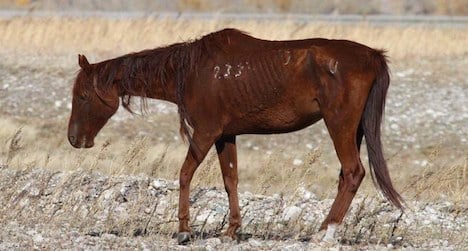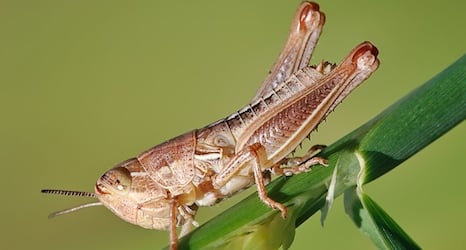The Kassensturz public affairs program, broadcast on Tuesday night by German-language broadcaster SRF, showed images of emaciated, beaten and bloody horses, transported in cramped conditions without access to water.
The images were obtained by the Zurich Humane Society (TSB) which conducted an investigation into where retailers such as Migros, Coop, Aldi, Lidl, Volg and Spar obtained their horsemeat.
The result of the investigation “clearly shows the torment involved in the horsemeat production,” said York Ditffurth, TSB president said in a statement on the society’s website.
Swiss retailers import around 5,000 tons of horsemeat — 90 percent of that consumed in Switzerland — from foreign sources that are difficult to trace, the society said.
But the group managed to track down the suppliers and monitored the treatment of the horses, the food they received, in addition to their conditions of transport and slaughter.
The results showed that neither Swiss nor European Union standards were being maintained with horses lacking veterinary care, with sick and dying animals left to care for themselves, the society alleged.
The Kassensturz program showed images of brutal transport of horses from the US — where slaughterhouses no longer process horsemeat — to abattoirs in Canada and Mexico.
Most retailers immediately decided to stop selling horsemeat products, as a precaution until the facts about their origin are clarified.
Volg, Denner, Aldi, Spar and Lidl are no longer selling the products, SRF said.
Coop said it has withdrawn such products as dried horsemeat from its stores until its procurement policies can be met.
But it is continuing to sell fresh horsemeat supplied from sources in France and Poland.
Migros has withdrawn some horsemeat products but said it continues to buy products from a Canadian supplier, for which it has full confidence.
The development is the latest wrinkle in a scandal that previously was confined in Switzerland to the mislabelling of frozen or prepared beef products that contained horsemeat.
It also raises further questions about supply chains for food retailers, manufacturers and distributors.



 Please whitelist us to continue reading.
Please whitelist us to continue reading.
Member comments